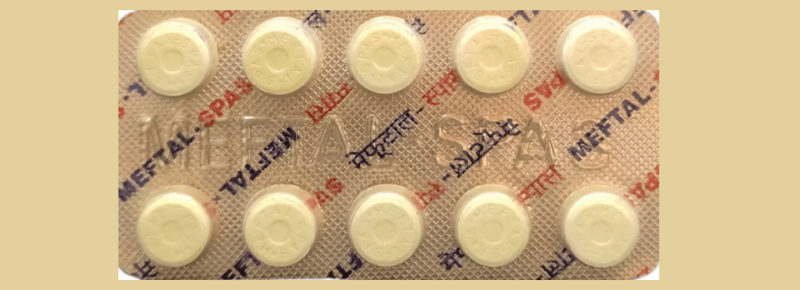
Author
In its latest advisory, the Indian Pharmacopoeia Commission has stated that the painkiller can trigger DRESS syndrome, a rare but severe allergic reaction.
The recent drug safety advisory by the Indian Pharmacopoeia Commission (IPC), urging healthcare practitioners and individuals to monitor potential adverse reactions associated with the painkiller Meftal, has caused much alarm, with conversations on social media adding fuel to the fire. Is Meftal unsafe? Should people stop using the drug? First Check gets you the answers backed by science.
What is Meftal?
The non-steroidal anti-inflammatory drug (NSAID), containing mefenamic acid, is commonly prescribed for relief from menstrual cramps, arthritis, inflammation, fever, dental pain, and any kind of mild to moderate pain.
What does the advisory say?
In its latest advisory, the IPC has stated that the use of this painkiller can trigger Drug Rash with Eosinophilia and Systemic Symptoms (DRESS) syndrome. This rare but severe allergic reaction can affect multiple organs, leading to complications. It is important to note that this is an exceptionally uncommon condition.
The advisory aims to enhance awareness and ensure the careful observation of any adverse effects in medical settings and among patients using Meftal for various therapeutic purposes.
First Check expert take
Dr Maulik Patel, First Check member and consultant physician from Gujarat, India, notes that Meftal is available as an over-the-counter (OTC) drug in India and “commonly abused”. While the drug per se is safe to use, dosage and duration are the key factors.
“Self-medication should be avoided, and the drug should be taken only as advised by doctors,” warns Dr Maulik. It’s important for the doctor to assess individual risks and ensure safe usage.
“DRESS syndrome is a severe adverse drug reaction characterised by an extensive skin rash in association with visceral organ involvement, lymphadenopathy, eosinophilia, and atypical lymphocytosis. It is estimated to occur in 0.9 to 2 per 100,000 patients per year,” informs the physician.
While the fear-mongering on social media is palpable, it’s sensible to follow health experts who have thorough knowledge on the subject. Dr Cuterus aka Dr Tanaya Narendra (the millennial doctor, with over one million followers on Instagram), for instance, is the voice of reason amidst all the unhelpful chatter about Meftal.
Stay informed, ask questions, talk to your doctors, and don’t fall for misinformation or fear-mongering about any health-related concerns.





